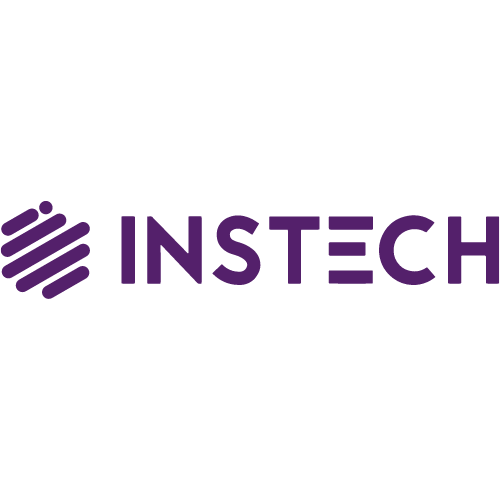In early summer, just as many of us turned our thoughts to a few weeks on a sun-lounger and very likely time spent browsing on our mobile devices, there was a degree of irony as the FCA published its paper on the “Potential competition impacts of Big Tech entry and expansion in retail financial services”. We’re all very aware of the general impact technology is having on our lives, but the FCA has three very specific concerns it has been considering. These are:
- The risk of Big Tech firms gaining and exploiting market power;
- The risk of benefits from Big Tech innovations in the consumer journey being offset by manipulation of behavioural biases – an issue we have already seen the regulator address with its work on price walking; and
- Risks that sit outside the existing regulatory perimeter where the FCA has power to intervene.
It’s now 12 months on from the launch of Amazon insurance, certainly one of the higher profile transitions from technology to insurance so far. And whilst the profile of Amazon as a ‘Big Tech’ firm is in no doubt, it certainly doesn’t (as yet at least) seem to have made the major impact that might have been expected. Presently, Amazon is operating as both an intermediary and a payment processor, with traditional insurance firms operating as product manufacturers still. But with much talk of the expertise of Big Tech firms in harvesting data and information, there can be little doubt that it is certainly well-placed, if it is so minded, to get a very good understanding of the risks and opportunities were it to choose to expand its footprint from FCA regulated activities to PRA regulated activities as well.
With Amazon’s track record of successful innovation in distribution chains often a pre-cursor to Amazon branded products (just take a look at how many products on Amazon now carry its branding) it would be no great surprise to see not only an extension of the product range, but also a gradual shift to white-labelled or even own branded insurance.
More recently, the risks and opportunities created by Artificial Intelligence have been in the spotlight, with the Prime Minister personally giving a speech on the subject on 26th October. Of course he focused on much more than the impact of AI and technology on financial services, but as we have seen our industry grapple with the insurance implications of driverless vehicle technology, so we are reminded that its impact affects us directly and indirectly.
Background
The impact of technology in our markets is probably seen as something of a double-edged sword. Technology is most certainly an enabler of much positive change across our industry, but equally, legacy systems have been something of a shackle for more-established firms. Big Tech firms are perceived to be unencumbered by such historical shackles and able to act more nimbly in innovating new consumer solutions. That of itself is not a bad thing, but the FCA fears they could quickly be in a position to exploit significant advantages – to the detriment of consumers – and is not certain the extent of its current perimeter provides it with the regulatory authority it needs to oversee everything it forsees.
The FCA opened its investigation into Big Tech back in October 2022, when it launched Discussion Paper DP22/5. Feedback closed in January 2023 and the latest development is the next phase of its work as it releases its analysis of the feedback and statement of intent on next steps.
At this stage, it is also worth reflecting on a range of related activity that is and has been taking place.
The Digital Regulation Co-operation Forum (DRCF) set up in 2020 and which brings together four UK regulators with responsibilities for digital regulation – the Competition and Markets Authority (CMA), the Financial Conduct Authority (FCA), the Information Commissioner’s Office (ICO) and Ofcom.
- The joint work between the DRCF and the Bank of England on Artificial Intelligence in financial services;
- The joint work between the FCA and the Prudential Regulation Authority (PRA) and Bank of England on operational resilience and the role of critical third parties, an area that is of significant concern to the FCA as the Big Tech firms become an increasingly embedded element of so many systems and processes; and
- Building out the Regulatory Sandbox and Innovation Pathways, which allow innovative firms and business models to enter the financial services market more easily, albeit in a very controlled way.
FCA Areas of Focus
Five key themes emerged from the initial FCA analysis in Discussion Paper 22/5 and there were no great surprises in the issues identified. By way of reminder, these were:
- That Big Tech firms have the potential to enhance the overall value of their ecosystems with further entry and expansion in retail financial services sectors through innovative propositions.
- In the short term, a partnership-based model between Big Tech and established financial services firms is likely to continue to be the dominant entry strategy for Big Tech firms. In the longer term though, they may seek to rely less on partnerships and compete more directly with existing firms. Amazon’s Insurance marketplace is the first example of this.
- Big Tech firms’ entry may not be sequential or predictable. Big Tech firms’ ecosystem business models and conglomerate operations mean entry into one financial services market may create opportunities for expansion into complementary financial markets. Insurers should, on that basis, be concerned about the degree to which Big Tech has successfully innovated in the banking space already.
- In the short-term and possibly enduring longer term, Big Tech firms’ entry in financial services could benefit many consumers. These benefits could arise from Big Tech firms’ own innovations or by increasing other market participants’ incentives to innovate, improve quality and reduce prices of financial products and services through increased competition.
- In the longer term, there is a risk that the competition benefits from Big Tech entry in financial services could be eroded if these firms can create and exploit entrenched market power to harm healthy competition and worsen consumer outcomes.
As can be seen, it’s all very positive – to a point. That’s not to say that Big Tech firms are acting any differently to any large firm that spots an opportunity. Indeed, when we reflect for a minute on the new secondary growth objective the FCA – and PRA – now have by virtue of the Financial Services and Markets Act 2023, this could be seen as a real blessing for the regulators. An opportunity to quickly demonstrate that they can indeed act in a way that will enable growth. The Regulatory Sandbox is an example of how they are already able to help stimulate that – something of a light-touch authorisation process to stimulate new entrants and propositions.
Primary FCA Concerns
The FCA see three main areas of concern. These are partly influenced by its experience of the way existing firms have themselves acted and partly from a concern this is an issue that is not entirely within its own control currently.
- Behavioural biases:
Also termed “Sludge, dark patterns and gamification”, the FCA is concerned about the ways Big Tech may seek to maximise returns. It’s something of a pattern with the way these firms have worked, with a constant expansion and contraction around the edges of what is considered acceptable. Think about the way data protection laws have evolved by way of example. The FCA will be seeking to ensure digital consumer journeys across priority areas empower consumers to take decisions in their best interest. - Perimeter
Competition risks in financial services from Big Tech firms’ activities outside the FCA perimeter are already a concern. Some aspects, like the involvement of Big Tech in Outsourcing & Critical Third Party work is at least partially in scope, but other aspects, like the regulatory approach to AI needs more work. The FCA will publish a Feedback Statement to its Discussion Paper on AI (DP22/04) and this will support the development of the regulatory approach to AI. - International Aspects of Big Tech
The FCA have been engaging with international regulators, recognizing the need to act in concert with our International friends to achieve sensible outcomes.
In the UK, Amazon is perhaps the best example of Big Tech firms directly entering the insurance space – successfully so far at least. Let’s not forget that Google Compare came and went some 7 years ago now and yet in the US, it is reported that an Alphabet Inc. company (Google’s parent company) specializing in healthcare insurance is one of its most profitable. The name Granular Insurance is not widely known in the UK as it stands, but that may change and its approach to insurance is most certainly one that could be described as ‘technology first’. It’s a fair bet that the FCA will be talking to their US counterparts to understand the landscape more effectively.
New FCA Actions
The FCA announced three new actions in its July Feedback Statement. These are:
- A call for Input on Big Tech firms role as ‘gatekeepers’ and key drivers including the role of data asymmetry between Big Tech firms and financial services firms. (by the end of 2023)
- A review of the approach to the supervision of Big Tech firms to improve the way they are monitored, both within and outside the existing perimeter. No timescale is given for this work.
- Working with the Government and the Digital Markets Unit on the new pro-competition regime for digital markets. We can expect further detail of how the FCA will implement the regulatory coordination provisions in the Digital Markets, Competition and Consumers Bill currently making its way through Parliament.
Conclusion
The influence of Big Tech on the financial services sector is encroaching rapidly into the space occupied historically by traditional firms. Amazon Insurance with its offering is a clear example of the way it is using partnerships with those firms to build its own knowledge, and whilst they might be mutually beneficial at this stage, it’s difficult to imagine there won’t be change coming if the capital, economic and regulatory environment makes further investment attractive.
The actions being taken by the FCA, and the wider governmental interest in the impact of such technology on our lives more generally all serves as a reminder that digital transformation is happening around us and the only question is the timing and extent to which individual insurance firms seek to be part of that transformation. Do they want to seize potential competitive advantage and manage the risks associated with seeking to do so, or do they wish to take a more cautious approach but risk losing market share?
The way Big Tech firms have approached the banking and insurance industries has rightly raised questions for the regulators. Those firms clearly have a much sounder grasp of the way technology can be used than most insurance firms possess directly and as such, with their in-built ability to capture and utilise data for competitive advantage, they have the potential to be very effective competitors to traditional insurance firms.
The Regulators have sought to take a balanced approach to the risks and opportunities that come with that market entry so far, recognising that they need to deliver on their new secondary objective to drive growth, alongside their primary objective to protect consumers. There was certainly no shortage of feedback from both existing market participants and industry bodies with an interest in the emerging situation. Our view is that the regulator is taking a sensible approach and that some of the actions it is taking, such as the use of the Regulatory Sandbox, may well benefit a wider set of organisations seeking to bring new and innovative solutions to the UK insurance marketplace.
The threat of Big Tech firms is not new, but it will certainly be focusing the mind of boards as they seek to position their firms for future growth. There is of course significant digital transformation happening within existing insurance firms already, notably the work on ‘Blueprint Two’ being driven through the London Market by Velonetic now, and emerging Artifcial Intelligence technology beginning to be used by established firms as they seek to gain competitive advantage from its adoption..
If you would like to discuss any aspect of your own firms’ approach to technology, or have a business plan for a new market proposition and would like some advice on the options to test and bring that to market, please speak with the author or your usual contact at ICSR.









